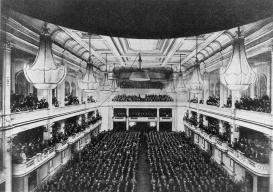During the first three decades of the twentieth century musicologists and music critics increasingly problematized the role of emotions in listening experiences. This project investigated how and why the study of emotions in music became contested. It attempted to show how musicologists and music critics observed and tried to control listening practices in the concert hall and how listening practices in turn influenced scientific thinking on emotions and emotionality. Music aesthetics distinguished itself by investigating listening as it was practiced in the concert hall, which had become the central location of musical experience in society. The hermeneutical method that dominated understanding emotions in music at the beginning of the century was replaced by phenomenological models of listening a few decades later. This change reflected a new understanding of distinguishing the body from the musical experience. Musical listening came to be thought of less and less as a physiological and psychological experience and increasingly as a technical matter that required special training. In studying emotions musicologists used observational techniques to study a subject that seemed to defy objective science. By rationalizing the study of emotions, the music aesthetics approach hoped to establish musicology as a legitimate area of research. Its use of scientific vocabulary was driven in part by a desire to reclaim the study of music from the margins of the humanities and to assert its social and cultural significance

Concert Hall "Saalbau" in Frankfurt am Main, 1932. With kind
permission by the Institut für Stadtgeschichte Frankfurt am Main.
Project
(2006)
